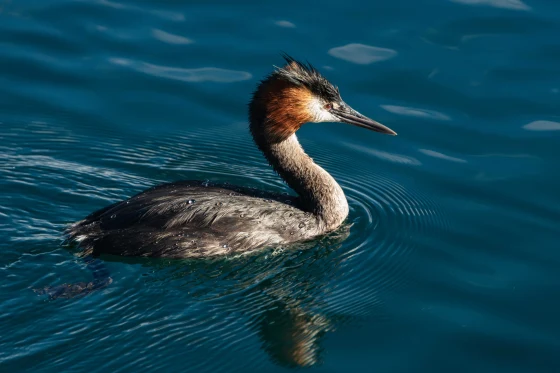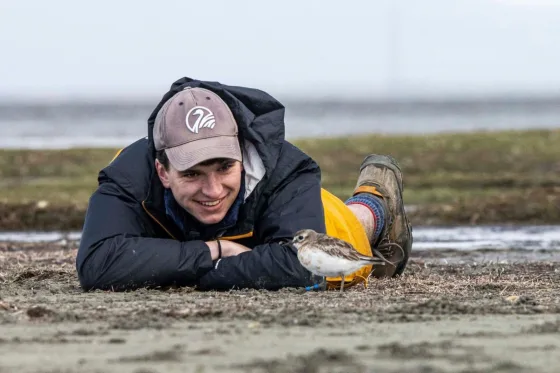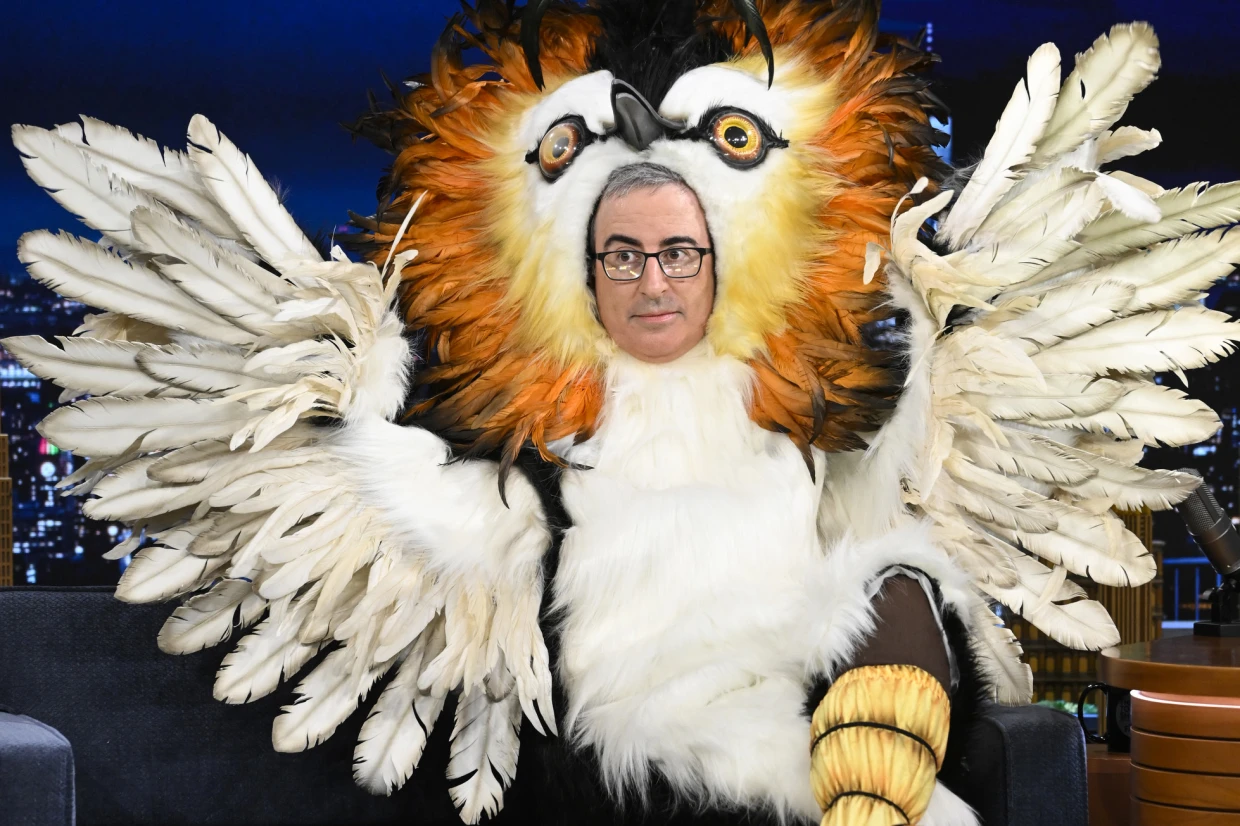“I’ve never felt a stronger connection,” declared the charismatic host of a popular television show, expressing an unexpected kinship with the endangered Australasian crested grebe, affectionately known as pūteketeke in Maori.
In the vibrant spectacle that is New Zealand’s annual “Bird of the Year” competition, an avian underdog is soaring to newfound fame, all thanks to the relentless efforts of none other than John Oliver from “Last Week Tonight.”
From the bustling billboards of Mumbai to the iconic stage of “The Tonight Show” in New York, Oliver’s advocacy knows no bounds as he champions the cause of the endangered Australasian crested grebe, or as he charmingly refers to it by its Maori moniker, pūteketeke.
“It’s not just a name; it’s a dance in your mouth,” Oliver quipped with enthusiasm during his appearance on the “Tonight Show,” where he sported a flamboyant pūteketeke costume.
With less than a thousand of these elegant diving birds left in New Zealand, characterized by their slender necks and what campaign organizers playfully call a “mullet,” Oliver’s impassioned campaign aims to shine a spotlight on the unique species.
Describing the birds’ quirky mating ritual, Oliver shared in a promotional video, “They engage in a mating dance involving a clump of wet grass, a chest bump, and then a moment of awkward uncertainty—truly, I’ve never related to anything more.”
Beyond the laughter and lightheartedness, the “Bird of the Year” competition serves a vital purpose, drawing attention to New Zealand’s indigenous birds, many of which teeter on the edge of extinction. With voting accessible to anyone worldwide possessing a valid email address, the winner is slated to be revealed on Monday, promising a feathered champion that captures hearts across the globe.

The stakes have reached unprecedented heights in this year’s competition, where the victor will be crowned the “Bird of the Century” in celebration of the 100th anniversary of its orchestrator, the esteemed conservation group Forest and Bird.
This contest has a history of stirring controversy. The previous year saw the exclusion of the kākāpō, the world’s weightiest parrot, after securing victory twice in the past. And in the year before that, a bat took home the coveted title.
John Oliver’s headline-grabbing advocacy for the pūteketeke has generated a deluge of additional votes, marking a significant surge in a competition that previously recorded its highest turnout at approximately 56,000 votes in 2021.
Forewarned about Oliver’s intentions, contest organizers welcome the heightened attention, aiming to foster greater awareness of how individual actions can imperil avian life. “It’s about changing the culture and investing more in conservation,” emphasized Ellen Rykers, a spokesperson for Forest and Bird.
New Zealand shelters 156 bird species, including flightless ones facing existential threats from predators, such as the iconic kiwi. “One of the biggest threats to the species here is predation,” stressed Danielle Shanahan, CEO of the Zealandia Ecosanctuary in Wellington. “People getting onboard with this issue and putting traps for things like rats makes a massive difference for conservation.”
Last year’s “Bird of the Year,” the pīwauwau or rock wren, garnered fewer than 3,000 votes. Expressing optimism, Oliver, in a conversation with Fallon, mused, “I think we might beat that due to the things we did.” His campaign has sprawled across billboards in New Zealand, India, Japan, France, Britain, Brazil, and even the small Wisconsin town of Manitowoc.
However, the extravagant campaign is not without its detractors among other campaign managers. Daniel Cocker, a biodiversity ranger and campaign manager for the southern New Zealand dotterel, or tūturiwhatu, admitted feeling a tinge of disappointment at the overwhelming support for the pūteketeke. Nevertheless, he acknowledged the positive impact on conservation, stating, “It is awesome for conservation.”

With fewer than 126 of these birds remaining in New Zealand, Cocker, at the age of 22, has witnessed their population dwindle by half since he began working with them at the age of 14.
Despite the challenging situation, he expressed appreciation for Oliver’s efforts, noting that “it’s really cool” that Oliver is bringing global attention to the beauty and uniqueness of New Zealand’s birdlife, emphasizing why they deserve protection.
Anticipating a sweeping victory for the pūteketeke, Oliver humorously remarked, “It is American money undermining a foreign election. What is more to be proud about than that?” in a playful nod to the overwhelming support generated by his campaign.
